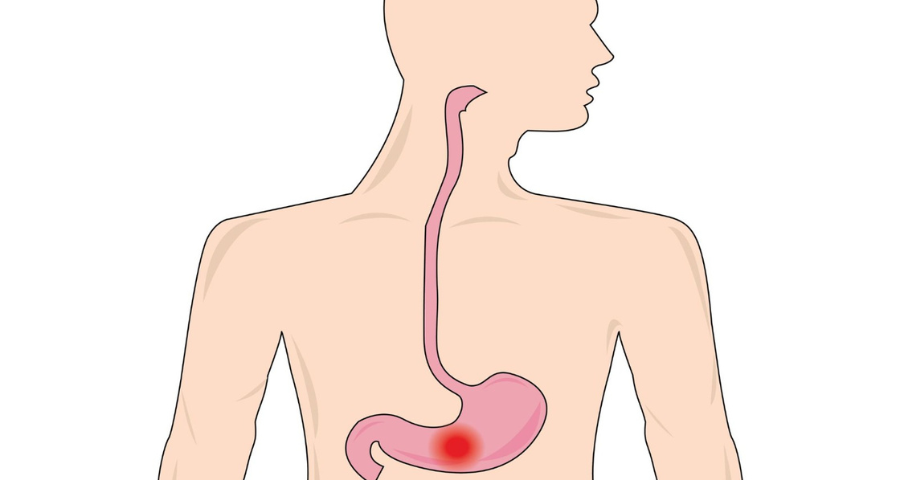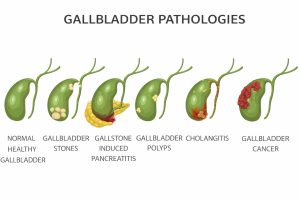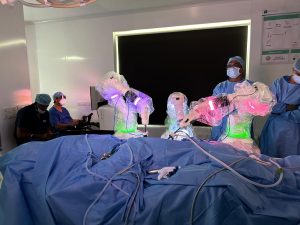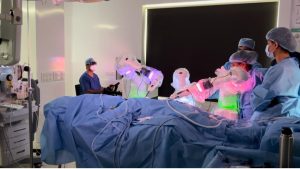Peptic ulcers develop on the stomach and upper small intestine mucous membrane. A stomach ulcer is a lesion that develops in the lining of the stomach, leading to an open sore. Pepsin is a digestive enzyme in the stomach that can leak into the duodenum. These juices play a significant role in peptic ulcer disease development.
Peptic ulcer types.
It encompasses both duodenal ulcers and stomach ulcers.
- Gastric ulcers form in the stomach lining.
- Duodenal ulcers: – Found in the duodenum, the first part of the small intestine.
Etiology
The two primary factors are:
- By H. pylori. This bacterial infection mainly affects people worldwide, primarily in the stomach. Not a problem for many. Their immune systems regulate it effectively in the GI tract. Bacteria cause stomach lining damage and inflammation, leading to peptic ulcer disease. H. pylori infection causes 60% of duodenal ulcers and 40% of stomach ulcers.
- NSAID overuse: Common OTC pain relievers: ibuprofen, naproxen, aspirin. NSAIDs cause ulcers through different mechanisms. Contact can irritate the stomach lining and hinder the function of protective and repairing molecules in the mucous lining. 30% of users develop peptic ulcers and 50% of peptic ulcers.
Other Uncommon Causes Include
- Alcohol and smoking.
- Heredity
- Dietary factors like low-fiber diet, caffeinated beverages, and fatty foods are linked to peptic ulcers.
- Stress and neurological issues have been associated with peptic ulcers
- Zollinger-Ellison Syndrome. This is an uncommon medical disorder characterized by excessive gastric acid production in the stomach.
- Severe illness, burns, or injuries can lead to the development of stress ulcers in the stomach
Symptoms Of Ulcers
The most common symptom of Peptic Ulcers is Stomach pain. Some other symptoms include
- Hematemesis- Vomiting which may manifest as red or black
- Melena, characterized by the passage of dark or tarry stools
- Dyspnea
- Experiencing dizziness or lightheadedness
- Emesis
- Inexplicable weight loss
- Altered food consumption
- GERD i:- When stomach acid flows back into the esophagus.
- Anorexia is a condition with extreme food restriction, leading to weight loss and distorted body perception.
- Gastric stenosis
- Hemorrhage and rupture of the ulcer
Management of Acid Peptic Disease
Dr. Srikanth Gadiyaram, a renowned gastroenterologist, can prescribe effective treatment for you. Therapeutic alternatives for peptic acid illness include:
- Antacids rapidly relieve symptoms by neutralizing gastric acid, providing relief from indigestion and heartburn.
- H2 receptor blockers are more effective than antacids at reducing gastric acid production.
- Proton pump inhibitors inhibit gastric acid production.
- H Pylori can be eradicated with antibiotics and either a proton pump inhibitor or bismuth molecule, achieving rates of 90% or higher.
- Surgery may be necessary if drugs are ineffective or if there are complications.
- Avoiding alcohol, nicotine, cigarettes, coffee, spicy and oily foods, aspirin, and other NSAIDs can help relieve symptoms, promote healing, and prevent ulcers.
Gastroenterology services are provided at Sahasra Hospital
Our team at Sahasra Hospital provides expert care and a smooth recovery journey. Our gastroenterology specialists at Sahasra Hospital provide expert diagnosis and treatment for digestive concerns. Call 8880837000 or 98801105829 to schedule an appointment.




